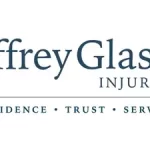Insurance for home stagers is a type of business insurance specifically designed to provide coverage and protection for individuals or companies operating in the home staging field. Home staging involves preparing and decorating properties, often real estate listings, to make them more attractive to potential buyers or renters. This industry has grown significantly as property owners and real estate agents recognize the value of presenting properties in their best possible light.
In this article, we will examine what home staging is, types of insurance for home stagers, benefits of having insurance for home stagers, factors affecting insurance for home stagers costs, how to obtain insurance for home stagers, common insurance claims in home staging, tips for managing insurance for home stagers costs, finding the right insurance for home stagers provider, and finally the top companies that provide the insurance for home stagers.
- What is Home Staging?
- Types of Insurance for Home Stagers
- Benefits of Having Insurance for Home Stagers
- Factors Affecting Insurance for Home Stagers Costs
- How to Obtain Insurance for Home Stagers?
- Common Insurance Claims in Home Staging
- Tips for Managing Insurance for Home Stagers Costs
- Finding the Right Insurance for Home Stagers Provider
- Top Companies Providing Insurance for Home Stagers
- Conclusion
- Life Insurance for Home Stagers FAQ
What is Home Staging?
Home staging is a strategic marketing technique in real estate to make a home more appealing to potential buyers. Home staging aims to present the property in its best possible light, showcasing its features and potential and helping it sell faster and at a higher price. Here are some key aspects to understand about home staging:
- Enhancing Visual Appeal: Home stagers focus on improving the overall visual appeal of a property. This involves decluttering, cleaning, organizing, and arranging furniture and decor to make the home look inviting and spacious. The goal is to create a neutral and attractive environment that allows potential buyers to envision themselves living in the space.
- Depersonalization: Personal items and family photographs are often removed or minimized during home staging. This helps buyers imagine the space as their own and reduces distractions from the current occupant’s style.
- Highlighting Key Features: Home stagers identify and accentuate the property’s key features, such as architectural details, fireplaces, large windows, or scenic views. They use appropriate decor and lighting to draw attention to these assets.
- Neutral Color Palette: Stagers often use neutral colors for walls, furniture, and decor. Neutral tones create a clean and cohesive look that appeals to a wider range of potential buyers.
- Furniture Arrangement: Stagers arrange furniture to maximize the flow and functionality of each room. This may involve removing or rearranging furniture to create a more spacious and open feel.
- Lighting: Adequate lighting is crucial in home staging. Well-lit spaces feel more welcoming and showcase the property’s best features. Stagers often use a combination of natural and artificial lighting to create a warm and inviting atmosphere.
- Curb Appeal: The home’s exterior is as important as the interior. Home stagers may suggest or improve the landscaping, paint, or front entry to enhance the property’s curb appeal and make a positive first impression.
- Virtual Staging: In today’s digital age, virtual staging has become popular. Instead of physically rearranging furniture and decor, virtual staging involves digitally adding or altering elements in listing photos to show potential buyers how a space could look with the right furnishings.
- Professional Assistance: While some homeowners stage their homes themselves, many hire professional home stagers. These experts have the experience and knowledge to transform a property effectively. Their home staging services may range from home staging consultations and recommendations to full-scale staging with rented furniture and decor.
- Return on Investment: Home staging can be an investment, but it’s often seen as worthwhile. Well-staged homes sell faster and at higher prices than unstaged or poorly staged properties. The cost of staging is generally less than the potential increase in selling price.
Home staging is a strategic approach to preparing a property for sale by making it more attractive to potential buyers. It involves various techniques to enhance the property’s visual appeal, create a welcoming atmosphere, and increase its marketability and value.
What is Virtual Home Staging?
Virtual home staging is a revolutionary approach to presenting your property online. It uses computer-generated imagery (CGI) to decorate and furnish an empty or dated-looking space. This technique enables potential buyers to envision a property’s full potential, creating a strong emotional connection that can significantly impact their purchasing decisions.
The Benefits of Virtual Home Staging
Virtual home staging is revolutionizing how real estate professionals market properties and capture the attention of potential buyers. In an era where digital presence and first impressions matter more than ever, this innovative technique offers many advantages beyond traditional physical staging. By leveraging cutting-edge technology and creative design, virtual home staging transforms vacant or dated spaces into visually appealing, aspirational homes that resonate with today’s discerning buyers. Whether you’re a real estate agent, seller, or buyer, understanding the transformative power of virtual home staging is essential in navigating today’s competitive real estate market.
- Cost-Effective: Traditional staging can be expensive, involving the rental and transportation of furniture. Virtual staging eliminates these costs.
- Faster Turnaround: Virtual staging can be done quickly, allowing you to list your property sooner and sell it faster.
- Endless Design Possibilities: With virtual staging, you can experiment with various interior design styles to see which resonates best with your target audience.
- Wider Reach: Virtual staging caters to online buyers, expanding your potential pool of interested parties.
Virtual home staging emerges as a game-changing tool in real estate marketing. By harnessing the potential of technology and creative design, virtual home staging elevates property presentations to a new level, captivating the imagination of potential buyers and helping homes stand out in a crowded market. Moreover, it streamlines the sales process, reducing time on the market and maximizing property values. Embracing this innovative approach is not merely a choice but a strategic move toward success in today’s competitive real estate market.
Choosing the Best Virtual Stagers
Selecting the best virtual stager is critical for anyone looking to market a property effectively in today’s competitive real estate landscape. Virtual staging has become essential for showcasing homes in their best light, but not all virtual staging services are created equal. To make an informed choice, it’s necessary to consider various factors, including the quality of the virtual staging, the range of design styles offered, pricing, and the reputation of the virtual stager.
When selecting a virtual staging company, consider the following factors:
- Portfolio: Review the company’s previous work to ensure its style aligns with your property’s appeal.
- Customization: Look for a company that offers customization options to tailor the staging to your property’s unique characteristics.
- Pricing: Compare pricing packages to find a service that fits your budget.
- Communication: Ensure clear communication channels with the staging team to achieve the desired results.
Selecting the best virtual stagers is pivotal in today’s real estate market. Virtual staging has evolved into a powerful tool for property marketing, and making the right choice can significantly impact your success in selling or renting a property. By considering factors like staging quality, design versatility, pricing, and reputation, you can identify virtual stagers who align with your goals and vision for the property. Whether you’re a real estate professional or a homeowner, investing in top-notch virtual staging services enhances your property’s appeal and streamlines the sales process, ultimately leading to more successful transactions.

Virtual home staging has become an invaluable tool in the real estate industry, allowing sellers to showcase their properties in the best possible light. To make the most of this innovative approach, consider enlisting the expertise of one of the best virtual staging companies. With their help, you can elevate your property’s appeal, attract potential buyers, and ultimately secure a quicker and more profitable sale.
Types of Insurance for Home Stagers
Like many business owners, home stagers should consider several types of insurance for home stagers to protect themselves, their assets, and their clients. Here are the primary types of insurance for home stagers may need:
- General Liability Insurance: This is the foundation of home staging insurance coverage for home stagers. It protects against third-party claims of bodily injury or property damage that may occur during your work. For example, suppose a client or a visitor to a staged property is injured, or their property is damaged due to your staging activities. In that case, this insurance can cover medical expenses and legal fees in case of a lawsuit.
- Property Insurance: If you own or lease staging inventory, including furniture, decor items, or artwork, property insurance is essential. It protects your assets in the event they are damaged, stolen, or destroyed. This coverage can help you recover the cost of replacing or repairing your staging items.
- Professional Liability Insurance (Errors and Omissions Insurance): Homestagers who provide design and decorating advice should consider professional liability insurance. It covers claims about professional staging error, negligence, or omissions in your free staging services. If a client alleges that your staging recommendations decreased property value or negatively impacted a sale, this home staging insurance can provide protection.
- Inland Marine Insurance: This insurance is crucial for safeguarding your staging inventory in transit to and from various properties. It covers the items you move from your storage facility to the staging locations and back.
- Business Owner’s Policy (BOP): A BOP combines various home staging insurance coverages into a single package, often including general liability, property insurance, and profitable staging business interruption insurance. It’s a cost-effective way for end home stagers to obtain essential business coverage.
- Commercial Auto Insurance: If you use a vehicle for business, such as transporting staging items or meeting clients, you may need commercial auto insurance. It covers accidents, injuries, and property damage involving your business vehicle.
- Business Interruption Insurance: In case of an unexpected interruption to your business, such as a fire damaging your staging inventory or a natural disaster preventing you from completing projects, mobile home staging business interruption insurance can help replace lost income during downtime. Another great way to ensure your home staging business is successful is to stay up-to-date on the latest home staging trends.
- Workers’ Compensation Insurance: If you have employees, most states typically require this insurance. It provides wage replacement and medical benefits to injured employees while performing their duties.
- Cyber Liability Insurance: The risk of data breaches and cyberattacks is real in the digital age. If you store client information electronically, maintain a website, or conduct business online, cyber liability insurance can protect you from financial losses associated with data breaches or cyber incidents.
- Umbrella Insurance: This additional liability policy provides extra coverage beyond the limits of your primary liability policies (such as general liability or professional liability insurance). It offers increased protection in case of a catastrophic event or large liability claim.
It’s essential to assess your specific insurance for home stagers needs based on your home staging business size, the services you offer, and the potential risks you face. Consulting with a home staging insurance professional or broker is advisable to customize your insurance for home stagers coverage to the unique requirements of your home staging business, ensuring comprehensive protection.
Benefits of Some Types of Insurance for Home Stagers for Home Stagers
Safeguarding against potential risks with the right insurance for home stagers coverage is crucial when running a successful home staging business. Home stagers transform spaces to appeal to potential buyers, which involves various activities, from moving and arranging furniture to offering design advice. Understanding the types of insurance available and their specific benefits can give homestagers peace of mind, allowing them to focus on their creative work without the burden of potential financial setbacks due to unforeseen incidents.
| Insurance Type | Covered Risks | Recommended For |
| General Liability | Accidents on property, bodily injuries, property damage | All home stagers |
| Professional Liability | Claims of negligence, misrepresentation | Stagers providing design and decor advice |
| Commercial Property | Damage to offices and storage locations | Stagers with physical business locations |
| Inland Marine | Damage to items in transit or at temporary locations | Stagers moving or storing items frequently |
| Workers’ Compensation | Employee injuries on the job | Stagers with employees |
| Business Owner’s Policy | Combination of various coverages | Small to medium-sized staging businesses |
Whether it’s safeguarding against physical damages to properties and decor, protecting against liability claims, or ensuring the wellbeing of employees, the right insurance for home stagers coverage ensures that home stagers can concentrate on their primary task of beautifying spaces without the looming worry of potential legal or financial issues. Each type of insurance offers specific benefits that can mitigate the unique risks faced in this home staging industry, making it essential for home stagers to assess their needs carefully and choose policies that provide comprehensive protection tailored to the distinct challenges of their work.
Benefits of Having Insurance for Home Stagers
Insurance is a critical component of any business, and for home stagers, it plays a pivotal role in ensuring the success and security of their operations. As professionals who transform properties into appealing, market-ready homes, home stagers face unique challenges and potential risks. Having the right insurance for home stagers coverage can provide a wide range of benefits that protect the home stager and instill confidence in clients and partners.

Insurance as a home stager offers several significant benefits, providing financial protection and peace of mind for you and your clients. Here are the key advantages of having insurance for home stagers:
- Financial Protection: Insurance provides a safety net to help cover the costs associated with unexpected events, accidents, or liability claims. Without insurance, you may be personally responsible for paying these expenses, which could be financially devastating.
- Protection for Your Assets: Property and inland marine insurance safeguard your staging inventory and equipment. In the event of theft, damage, or loss, your insurance can cover repairing or replacing these items, preserving your business assets.
- Professional Credibility: Clients often feel more confident hiring insured home stagers. It demonstrates that you take your business seriously and are committed to protecting their interests. Insurance for home stagers can enhance your professional image and real estate staging association credibility.
- Liability Coverage: General and professional liability insurance protects you from the financial consequences of third-party claims. Whether it’s a slip-and-fall accident during a staging project or a client’s dissatisfaction with your services, insurance for home stagers can cover legal fees, settlements, and medical expenses.
- Legal Compliance: In many areas, having certain types of insurance, such as general liability insurance, is a legal requirement for operating a business. Compliance with local regulations and industry standards is crucial to avoiding fines and legal issues.
- Business Continuity: Insurance, especially business interruption insurance, can help you keep your business afloat during challenging times. Whether it’s a natural disaster, fire, or other unforeseen circumstances that disrupt your operations, insurance can provide income replacement until you’re back on your feet.
- Risk Mitigation: By transferring some of the risks associated with your business to an insurance for home stagers provider, you reduce the financial burden of potential accidents or lawsuits. This allows you to focus on your work without constant worry about what might go wrong.
- Professional Growth: Insurance can provide you the stability and security to pursue larger, more lucrative projects. Clients and partners may be more inclined to collaborate if they know you have proper insurance coverage.
Insurance for home stagers is not just a financial safety net; it’s also a valuable tool for building trust, complying with legal requirements, and allowing your business to thrive and expand. While it involves some costs, its protection and benefits far outweigh the premiums, making it an essential investment for your home staging business.
Factors Affecting Insurance for Home Stagers Costs
Insurance for home stagers costs for home stagers are influenced by a combination of factors that insurers use to assess risk and determine premiums. Understanding these factors can help home stagers make informed decisions about their insurance coverage and manage their costs effectively.

Here are the key factors affecting insurance for home stagers costs for home stagers:
- Type of Insurance: The specific types of insurance for home stagers you need, such as general liability, professional liability, property insurance, and others, will impact the overall cost. Each type of coverage has its pricing structure.
- Coverage Limits: The higher the coverage limits you choose, the more you’ll pay in premiums. More comprehensive coverage provides greater protection but comes at a higher cost.
- Business Size: The size and scale of your home staging business can affect insurance for home stagers costs. Larger companies with more assets and operations may pay higher premiums.
- Claims History: Your claims history, including the frequency and severity of past claims, can impact your insurance costs. A history of frequent or costly claims can result in very high premiums.
- Deductibles: Deductibles are the out-of-pocket amounts you must pay before your insurance coverage takes effect. Opting for higher deductibles can lower your premiums, but you’ll pay more if you need to make a claim.
- Business Location: Your business’s physical location can influence insurance for home stagers costs. Areas prone to natural disasters or higher crime rates may have higher insurance premiums.
- Business Experience: Insurers often consider how long you’ve been in business. Established home staging businesses with a track record of success may qualify for lower premiums.
- Scope of Services: The types of services you offer can impact insurance for home stagers costs. If you provide additional services like interior design or consultation, you may need additional coverage, which can increase premiums.
- Business Structure: Whether you operate as a sole proprietorship, partnership, LLC, or corporation can affect insurance for home stagers costs. Different business structures may have additional insurance requirements and pricing.
- Inventory Value: The total value of your staging inventory, including furniture, decor items, and artwork, can affect property insurance premiums. Higher inventory values may lead to higher premiums.
- Industry Regulations: Regulatory requirements and industry standards can impact the type and amount of insurance coverage you need, affecting costs.
- Claims Frequency in Your Industry: Insurers consider the historical claims data for home staging businesses when setting premiums. If the industry experiences a high frequency of claims, it may lead to higher rates for all practitioners.
- Discounts: Some insurers offer discounts for bundling multiple policies, maintaining a claims-free record, or completing safety training home staging courses.
To manage insurance for home stagers costs effectively, home stagers need to work closely with insurance professionals or brokers who understand their industry’s unique needs and risks. Shopping around and comparing quotes from different insurers can also help you find the most competitive rates while ensuring you have the appropriate coverage to protect your home staging business.
How to Obtain Insurance for Home Stagers?
Obtaining insurance for home stagers is vital for home stagers to safeguard their businesses and provide peace of mind to themselves and their clients. There are inherent risks and uncertainties in the dynamic world of home staging, where properties are transformed into market-ready homes. The right insurance for home stagers coverage can make all the difference from potential accidents on the job site to unforeseen property damage and liability claims.
Obtaining insurance for home stagers for your home staging business involves several steps to ensure you have the right coverage at a reasonable cost. Here’s a guide on how to get insurance for home stagers:
Identify Your Insurance Needs
Start by assessing your specific insurance for home stagers needs. Consider the type of services you offer, the size of your business, and the potential risks you may face. Common insurance types for home stagers include general liability, professional liability, property insurance, and possibly others like business interruption or inland marine coverage.
Research Insurance Providers
Research insurance for home stagers providers that offer coverage for home stagers. Look for insurers with experience in your industry and a good reputation for customer service. You can find insurance companies through online searches, colleague referrals, or industry associations.
Work with an Insurance Broker
It is very important to work with an insurance broker who specializes in business insurance. Brokers have access to multiple insurance companies and can help you compare policies and find the best coverage at competitive rates. They can also provide expert advice tailored to your specific needs.
Gather Business Information
Prepare the necessary information about your home staging business, including its structure (e.g., sole proprietorship, LLC), business location, services offered, number of employees, inventory value, and claims history (if applicable). Having this information ready will make the application process smoother.
Request Quotes
Contact insurance for home stagers providers or your insurance broker to request quotes for the needed coverage. Be sure to provide accurate information about your business to get real quotes. Ask questions and seek clarification on aspects of the range or terms you don’t understand.
Compare Policies and Costs
Review the quotes you receive and compare the policies, coverage limits, deductibles, and premium costs. Consider the overall value of the coverage, not just the price. Look for policies that offer the protection your business requires.
Customize Your Coverage
Work with your insurance for home stagers provider or broker to customize your coverage to meet your needs. They can help you tailor your home staging insurance policy to address the unique risks associated with your home staging business.
Review Policy Details
You should carefully review the terms and conditions of the insurance for home stagers policy before making a decision. Pay attention to coverage limits, exclusions, deductibles, and any endorsements or additional coverages included in the policy.
Purchase the Insurance
Once you’ve chosen the right insurance policy, complete the application process and purchase the coverage. Make your premium payments on time to keep your coverage active.
Keep Records
Maintain records of your insurance for home stagers policies, including policy documents, payment receipts, and contact information for your insurance provider or broker. You may need to access this information in the event of a claim or policy inquiry.
Review and Update Annually
Your insurance for home stagers needs may change as your home staging business grows or evolves. It’s essential to review your insurance coverage annually with your broker or insurance provider to ensure it remains adequate and cost-effective.

Remember that insurance for home stagers is a crucial investment in protecting your home staging business, and it’s worth taking the time to get it right. Working with an experienced insurance professional can help you navigate the complexities of insurance policies and ensure you have the coverage you need to safeguard your business against unexpected events and liabilities.
Common Insurance Claims in Home Staging
Home staging is dynamic and creative but not immune to unexpected events and mishaps. Home stagers may encounter various situations that lead to insurance claims. Here are some common insurance claims in home staging:
- Property Damage Claims: Accidents can happen during the listing staging process, damaging the property or fixtures. For example, furniture or decor items may scratch floors, walls scuffed, or paint damaged when moving items in or out. Property damage claims can help cover the cost of repairs or replacements.
- Damage to Staging Inventory: Home stagers typically maintain an inventory of furniture, artwork, and decor items. This inventory can be damaged or destroyed due to unforeseen events like fires, floods, or theft. Property or inland marine insurance can help cover the cost of replacing these items.
- Client Dissatisfaction Claims: While rare, clients may claim that your staging work didn’t meet their expectations or negatively affected their property’s market value. Professional liability insurance (errors and omissions insurance) can protect in such cases.
- Theft or Vandalism: Staging items left in vacant properties can be vulnerable to theft or vandalism. Property insurance for home stagers can help cover the loss or damage of staging inventory due to theft or vandalism.
- Accidental Injury Claims: Home staging often involves moving heavy furniture and objects, and accidents like trips, slips, or falls can occur. If a client or a visitor is injured during the friendly staging process, they may file an accidental injury claim against your liability insurance.
- Vehicle Accidents: If you use a vehicle for your home staging business and are involved in an accident while transporting staging items, you may need to file an auto insurance claim to cover damages to your vehicle and any third-party injuries or damages.
- Data Breach Claims: If your home staging business stores client information electronically and experiences a data breach or cyberattack, clients may file claims related to data security breaches. Cyber liability insurance can help cover the costs associated with data breach claims, including legal fees and notification expenses.
- Advertising Injury Claims: If your marketing materials, advertisements, or online content inadvertently infringe on someone else’s copyright or trademark, you may face an advertising injury claim. Liability insurance can provide coverage for legal expenses in such cases.
- Business Interruption Claims: Events like fires, natural disasters, or other property-related incidents can disrupt business operations. Business interruption insurance can cover lost income and ongoing expenses during the downtime.
- Workers’ Compensation Claims: If you have employees and one of them is injured while performing their home staging jobs duties, they may file a workers’ compensation claim. This insurance provides medical assistance and wage compensation to injured employees.
Home stagers must have the appropriate insurance for home stagers coverage in place to mitigate the financial impact of these common insurance for home stagers claims. Understanding your insurance policies, including coverage limits, deductibles, and exclusions, is essential to ensure you’re adequately protected in unexpected incidents or disputes. Additionally, promptly reporting incidents to your insurance provider and following their claims process is necessary to facilitate the resolution of claims.
Tips for Managing Insurance for Home Stagers Costs
Managing insurance for home stagers costs is essential for businesses, including home staging enterprises. While insurance is a necessary expense, there are ways to optimize your coverage and minimize costs without sacrificing the protection you need.

Here are some tips for managing insurance for home stagers costs as a home stager:
- Consider Higher Deductibles: Increasing your deductible—the amount you pay out of pocket before your insurance coverage kicks in—can lead to lower premium costs. Just be sure you have the financial means to cover the deductible if you need to make a claim.
- Review Your Coverage Annually: Your insurance for home stagers needs may change as your home staging business evolves. Conduct an annual review of your insurance for home stagers policies with your insurance provider or broker to ensure you have the appropriate coverage and aren’t paying for coverage you no longer need.
- Implement Risk Management Practices: Demonstrating a commitment to safety and risk management can often lead to lower insurance for home stagers costs. This might include ensuring your staging inventory is stored safely, using proper lifting techniques to prevent injuries, and having safety measures during staging projects.
- Package Policies: Many insurance for home stagers companies offer discounts when you bundle multiple policies. Consider consolidating your insurance needs, such as general liability, professional liability, and property insurance, with a single provider to take advantage of potential savings.
- Improve Your Credit Score: In some cases, insurers may use credit scores to determine premiums. Having a good credit score can significantly help you get lower insurance rates.
- Pay Attention to Policy Details: Understand the details of your insurance for home stagers policies, including coverage limits, exclusions, and endorsements. Ensure you have the necessary coverage without unnecessary add-ons that can increase costs.
- Consider Risk Mitigation Strategies: Develop strategies to minimize risks in your business operations. For example, clear contracts with clients, thoroughly vetted subcontractors, and proper documentation can help reduce liability and potential claims.
- Review and Compare Quotes When Renewing: Refrain from assuming that your current insurance for home stagers provider will always offer the best rates upon renewal. Continue to review and compare quotes each year to ensure you’re getting the most competitive premiums.
- Maintain a Strong Business Profile: Insurers may view a well-established and reputable business as less risky. Building a strong business profile can lead to lower premiums over time.
By carefully managing your insurance for home stagers costs and optimizing your coverage, you can protect your home staging business while controlling expenses. It’s essential to balance affordability and adequate protection to ensure the long-term success of your enterprise.
Finding the Right Insurance for Home Stagers Provider
Choosing the right insurance provider for home staging is important as it can help protect against potential liabilities and losses. Here are some key points to consider when selecting an insurance provider for home staging:
- Industry Experience: Choose a provider with experience in insuring real estate or interior design businesses. They are more likely to understand the unique risks associated with home staging.
- Type of Coverage: Ensure the insurance covers specific home staging needs, such as property damage, theft, and liability. General liability insurance is crucial; you might also consider professional liability insurance.
- Customizable Policies: Look for insurers that offer customizable policies. Since home staging involves a range of activities, from moving furniture to interior design, being able to tailor your coverage can be highly beneficial.
- Reputation and Reviews: Read reviews and testimonials to check the insurer’s reputation. Consider their customer service, claims process, and overall customer satisfaction.
- Cost: Compare quotes from multiple providers to find a good value policy. Be wary of unusually cheap policies, as they might need to provide adequate coverage.
- Additional Benefits: Some insurers might offer additional benefits, such as business interruption insurance, which can be valuable if your operations are disrupted.
By carefully considering these points, you can find an insurance provider that offers the right protection for your home staging business, ensuring you are covered for various potential risks.
Top Companies Providing Insurance for Home Stagers
Home staging is a crucial aspect of the real estate industry, helping homeowners and agents showcase properties in their best light to potential buyers. Established and budding home stagers in this highly competitive field understand the importance of protecting their investments and assets. This is where insurance for home stagers comes into play, offering essential coverage for unforeseen events and liabilities. Several top companies specialize in providing insurance for home stagers tailored to the unique needs of home stagers, offering peace of mind and financial security in an industry where presentation and protection go hand in hand.
Here is a list of the best insurance for home stagers companies:
- Thimble Business Insurance
- Prudential Financial Inc.
- SBLI Life Insurance
- Fidelity Life Insurance
Let’s review the best insurance for home stagers companies in order:
Thimble Business Insurance

Thimble Business Insurance is a company that offers business insurance tailored to the needs of small businesses, freelancers, and independent contractors. They specialize in providing flexible and on-demand insurance coverage designed to protect businesses from various risks and liabilities. Thimble’s insurance products are accessible through their mobile app or website, allowing customers to purchase coverage when needed, whether for a specific project, event, or ongoing basis.
It’s important to note that insurance offerings and features may change over time, so it’s a good idea to visit the Thimble Business Insurance website or contact their customer support for the most up-to-date information on their products and services. Additionally, the availability of Thimble insurance may vary by location, so coverage options and terms may differ depending on your location and business type.
Thimble Insurance for Home Stagers
Thimble Business Insurance is a company that provides on-demand insurance coverage for various businesses and independent professionals. Home staging is a service where professionals prepare and decorate homes for sale to make them more appealing to potential buyers. Like any business, home stagers face certain risks, and insurance can help protect them in unforeseen events or accidents.
To obtain insurance through Thimble Business Insurance or a similar provider, you must go through an application process. This might involve providing information about your business, its size, location, and the type of coverage you need. Thimble Business Insurance specializes in providing flexible, on-demand insurance, which can be convenient for businesses with varying insurance needs.
Remember that insurance requirements and options may vary depending on your location and specific circumstances, so it’s a good idea to consult an insurance agent or broker to help you tailor your coverage to your home staging business’s needs. Additionally, always read and understand the terms and conditions of any insurance policy you consider purchasing.
To learn more about Thimble Business Insurance, you can review this article: Thimble Business Insurance
From this link you can visit Thimble Business Insurance‘s website: https://www.thimble.com/
Thimble Business Insurance Phone Number: (855)-940-4525
Prudential Financial Inc.

Prudential Financial Inc. is a well-known financial services company in the USA. Prudential Financial, often referred to simply as Prudential, is a Fortune Global 500 company that provides customers with a wide range of financial products and services, including life insurance, annuities, retirement-related services, mutual funds, and investment management.
Prudential Financial Inc. has several subsidiaries and affiliates, each specializing in different aspects of the financial services industry. Some well-known subsidiaries include PGIM (Prudential Global Investment Management) and Prudential Retirement. Prudential has been actively involved in philanthropic and community development initiatives. They have supported various staging diva home staging training program and organizations aimed at improving financial literacy, education, and economic opportunities in the home staging communities they serve. The Staging Diva Program is very well organized and explains how to set up your business and maintain and grow it in the most straightforward terms. The Staging Diva Program is fantastic. The Staging Diva Program is very comprehensive, flows well, is explained, and the content is engaging.
Prudential Financial Insurance for Home Stagers
Prudential Financial Inc. operates as a financial services company, offering various products and services related to life insurance, retirement planning, investment management, and other financial solutions. Home stagers are professionals who prepare and stage homes for sale, increasing interest from potential buyers. Prudential Financial Inc. offers liability or home staging business insurance products that may be suitable for home insurers as part of their broader insurance offering.
Keep in mind that insurance needs can vary based on factors such as your location, the size of your business, and the specific services you provide, so it’s essential to discuss your requirements with an insurance agent or broker who can help you find the right coverage for your home staging business.
To learn more about Prudential Financial Inc., you can review this article: Prudential Financial Inc.
From this link you can visit Prudential Financial Inc.‘s website: https://www.prudential.com/
Prudential Financial Inc. Phone Number: 1-800-778-4357
SBLI Life Insurance

SBLI (Savings Bank Life Insurance) is a well-established life insurance company in the United States. Founded in 1907, it has a long history of providing individuals and families with life insurance products and services. SBLI Life Insurance offers straightforward, affordable, and reliable life insurance coverage. SBLI Life Insurance primarily offers various life insurance products, including term life insurance, whole life insurance, and universal life insurance. These products provide coverage for policyholders and their beneficiaries in the event of death.
Term life insurance from SBLI Life Insurance covers a specified term, such as 10, 20, or 30 years. It is designed to provide a death benefit to beneficiaries if the policyholder passes away during the policy term. It is a popular choice for people looking to protect their loved ones during specific periods of financial vulnerability.
SBLI Life Insurance has embraced digital technology to make it easier for customers to apply for and manage their life insurance policies. You can often get quotes, apply for coverage, and manage your policy online. Before purchasing any life insurance policy, it’s essential to assess your financial needs and goals and compare different policies to find the one that best suits your situation. Additionally, it’s wise to consult with a financial advisor or insurance agent to ensure you make an informed decision about your life insurance coverage.
SBLI Insurance for Home Stagers
SBLI, which stands for Savings Bank Life Insurance, is a life insurance company that primarily offers life insurance products such as term life insurance, whole life insurance, and universal life insurance. Home staging is a service in the real estate industry where professionals decorate and arrange a home’s interior to make it more appealing to potential buyers.
To obtain insurance coverage specific to home staging, it is recommended that you consult a regular insurance agent or broker, such as SBLI, for commercial insurance. They can assess your needs and help you find the right policies to protect your business and assets.
Remember that insurance requirements and options may vary by location and the size and scope of your home staging operations, so working closely with an insurance professional is essential to ensure adequate coverage.
To learn more about SBLI Life Insurance, you can review this article: SBLI Life Insurance
From this link you can visit SBLI Life Insurance‘s website: https://www.sbli.com/
SBLI Life Insurance Phone Number: 888-630-5000
Fidelity Life Insurance

Fidelity Life Insurance refers to Fidelity Life Association, a life insurance company based in the United States. Fidelity Life Association was founded in 1896 and is headquartered in Chicago, Illinois. It has a long history in the insurance industry and is one of the oldest life insurance companies in the United States.
Fidelity Life Insurance offers a range of life insurance products, including term life insurance, whole life insurance, and universal life insurance. These policies provide financial protection to policyholders and their beneficiaries in the event of the policyholder’s death. The financial strength of an insurance company is an important factor to consider when purchasing life insurance. Like other insurance companies, Fidelity Life Insurance is subject to regulatory oversight and must meet certain financial standards to ensure it can fulfil its obligations to policyholders.
In addition to traditional life insurance products, Fidelity may offer riders additional features that can be added to policies. These riders can provide accelerated death benefits, allowing policyholders to access a portion of their death benefit if diagnosed with a terminal illness.
Fidelity Life Insurance for Home Stagers
Fidelity Life Insurance is a insurance company that offers a variety of life insurance products. Home staging is a niche profession within the real estate industry, and insurance needs for home stagers can vary. Suppose you are a home stager or own a home staging business seeking insurance coverage. In that case, you may need to consider a combination of insurance policies to adequately protect your business and assets.
It’s important to speak with an insurance agent or broker specializing in commercial insurance to assess your specific needs as a home stager and to tailor an insurance package that suits your business requirements. They can help you determine the appropriate coverage limits and ensure you have the protection to safeguard your business and assets.
To learn more about Fidelity Life Insurance, you can review this article: Fidelity Life Insurance
From this link you can visit Fidelity Life Insurance‘s website: https://fidelitylife.com/
Fidelity Life Insurance Phone Number: 1.866.853.3013
Conclusion
Insurance is a crucial aspect of running a successful home staging business. It provides peace of mind, protects your assets, and ensures you can continue operating despite unexpected challenges. Before selecting insurance policies, consult with an insurance professional to determine the specific coverage needs of your home staging business. By investing in the right insurance coverage, you can focus on what you do best—transforming properties into dream homes—while knowing you’re financially protected.
Life Insurance for Home Stagers FAQ
This FAQ section aims to demystify life insurance for home stagers, addressing common questions and concerns that may arise as you navigate your options. Whether you’re just starting or looking to enhance your existing coverage, this guide will help clarify the benefits, types, and necessary considerations explicitly tailored to your profession’s unique risks and needs.
Do home stagers buy furniture?
Yes, home stagers often buy furniture to use in the homes they are staging. Home staging involves preparing a property for sale by making it look its best to attract potential buyers. This often includes arranging furniture and decor to highlight the property’s best features and make it feel inviting and appealing. Home stagers may have their inventory of furniture and decor items they use for staging, and they may purchase these items specifically for this purpose. Alternatively, they may rent furniture and decor from furniture rental companies for the duration of the staging project.
What is the best home staging certification?
The best home staging certification can vary depending on individual preferences and goals. Some well-respected options include RESA-Pro (Real Estate Staging Association Professional), ASP (Accredited Staging Professional) by IAHSP (International Association of Home Staging Professionals), and HSR (Home Staging Resource) Certification. Researching and choosing a program that aligns with your needs, budget, and location is essential.
Are there any specific scenarios where home staging insurance is particularly important?
Insurance is particularly important in high-value homes or areas prone to natural disasters. It’s also crucial when staging involves expensive or rare items that are difficult to replace.
How can a home stager reduce their insurance costs?
Maintaining a good track record with few or no claims, choosing a higher deductible, and combining different types of insurance under a single provider can help reduce premiums.
Can home stagers get temporary insurance for a single project?
Yes, some insurers offer short-term policies that cover a single project. This can be a cost-effective option for stagers who do not require annual coverage.






















